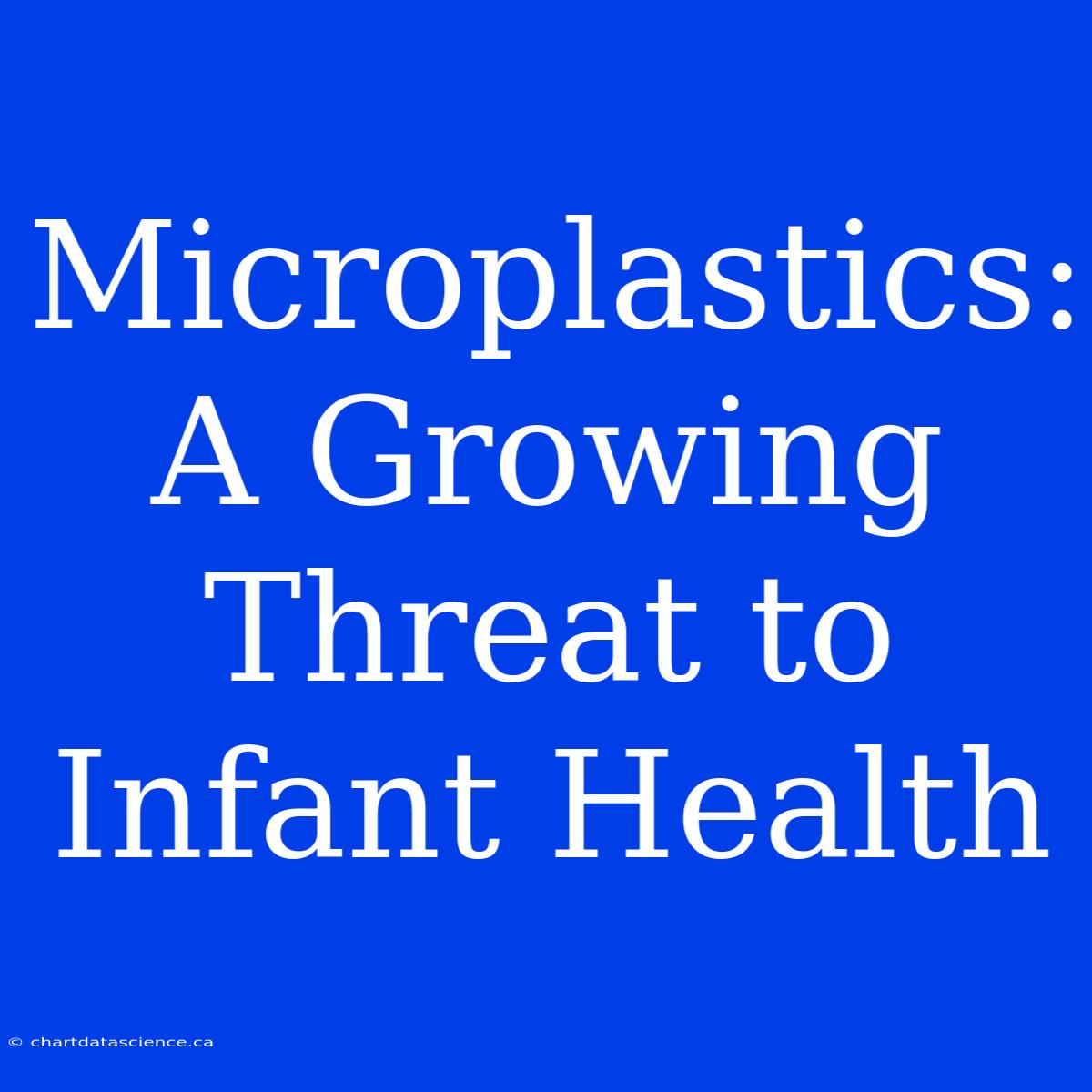Microplastics: A Growing Threat to Infant Health
Microplastics, those tiny plastic particles smaller than 5 millimeters, are everywhere. They're in our food, water, and even the air we breathe. But what about our babies? Are they vulnerable to the dangers of microplastics? The answer is a resounding yes.
Microplastics are a growing concern for infant health due to their potential to disrupt crucial developmental processes. These tiny particles can accumulate in the body, potentially leading to adverse effects on the developing brain, immune system, and even the microbiome.
Microplastics in Infant Formula and Breast Milk
Studies have shown that microplastics are present in infant formula and breast milk. This is a worrying finding as infants are highly susceptible to environmental toxins due to their rapidly developing organs and immature immune systems.
Microplastics can enter the food chain through various sources, including plastic packaging, water contamination, and agricultural practices. These particles can then find their way into breast milk through the mother's diet or directly through exposure to contaminated environments.
Potential Health Impacts of Microplastics on Infants
The long-term health effects of microplastic exposure in infants are still being investigated. However, research suggests that they could potentially lead to:
- Developmental Delays: Microplastics may interfere with brain development, leading to delays in cognitive and motor skills.
- Immune System Dysfunction: Exposure to microplastics could weaken the immune system, making infants more vulnerable to infections.
- Gut Microbiome Imbalance: Microplastics can disrupt the delicate balance of bacteria in the gut, potentially affecting digestion and overall health.
- Hormonal Disruption: Some microplastics have been linked to endocrine disruption, which can interfere with the production and function of hormones crucial for growth and development.
Reducing Microplastic Exposure in Infants
While research on the specific impacts of microplastics on infant health is ongoing, taking steps to minimize exposure is crucial. Here are some tips:
- Choose BPA-free bottles and containers: Bisphenol A (BPA) is a chemical found in many plastics that can leach into food and drinks. Opt for bottles and containers labeled BPA-free.
- Wash plastic baby products thoroughly: Wash all baby products made of plastic with soap and water before use.
- Avoid using plastic toys in the bathtub: Plastic toys can shed microplastics into bathwater. Consider using rubber duckies made of natural materials instead.
- Be mindful of food packaging: Choose food options with minimal plastic packaging. Opt for glass or reusable containers whenever possible.
- Support sustainable practices: Advocate for policies that reduce plastic waste and promote sustainable practices.
Protecting infants from microplastics is a shared responsibility. As parents and caregivers, we must be informed and take action to reduce their exposure. By working together, we can help ensure a healthier future for our little ones.

